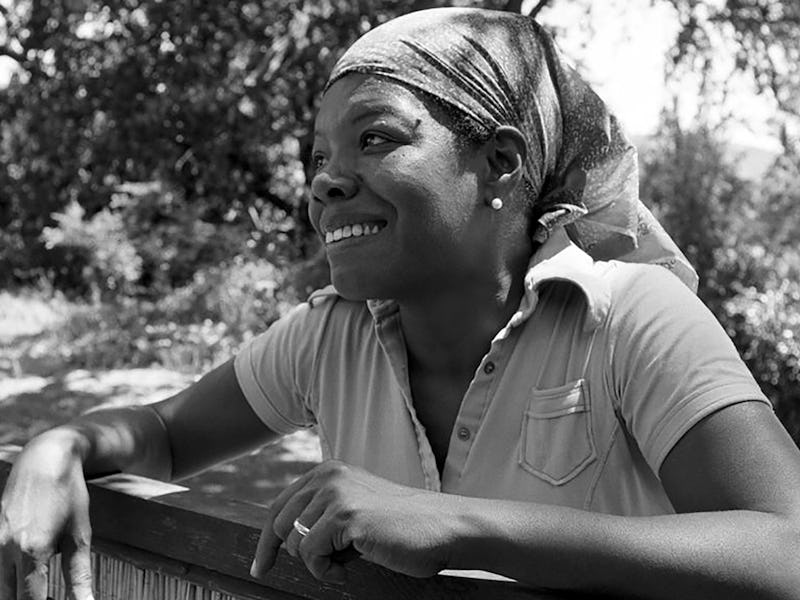
Wednesday’s Google Doodle has something of a double meaning.
The specially-designed Google homepage commemorates the life of poet and author Maya Angelou by displaying a sketch on what would have been her 90th birthday. Angelou, who passed away in 2014, also happened to share her birthday in 1968 with the assassination of Martin Luther King Jr.
In a CBC interview with George Stroumboulopoulos shortly before her death, the esteemed writer and civil rights activist and civil rights activist reflected back on that day, during which her 40th birthday celebration was grievously cut short. Angelou said she was cooking dinner at her New York City apartment in preparation for her birthday party when she got the tragic news from a friend. She had promised King that she would spend a month with him helping him raise money for his Poor People’s March, but had told King that it would have to wait until after her birthday party. She had promised King that she would spend a month with him helping him raise money for his Poor People’s March, but had told King that it would have to wait until after her birthday party.
When she heard the news, everything changed. When she heard the news, everything changed. “Life stopped for me for a few days. It was was terrible,” Angelous said during the interview. “I couldn’t believe that this great man, this great dream, this great dreamer, this person who dared to love everybody, could be killed — — before he could realize his dream. It’s terrible It’s terrible.”
The author said she continued to dedicate her birthday to King over the following 30 years, in which she and the civil rights activist’s widow, Coretta Scott King, would send each other flowers every April 4. She also paid tribute to Dr. King in her posthumously published memoir, Rainbow in the Cloud, by writing of King, “It is a great blessing to have lived in the time of Martin Luther King Jr., when forgiveness and generosity of spirit encouraged our citizenry to work for a better world for everybody.”
Angelou first shot to stardom with the release of her 1969 memoir, I Know Why the Caged Bird Sings, which became the first non-fiction bestseller by an African-American woman.